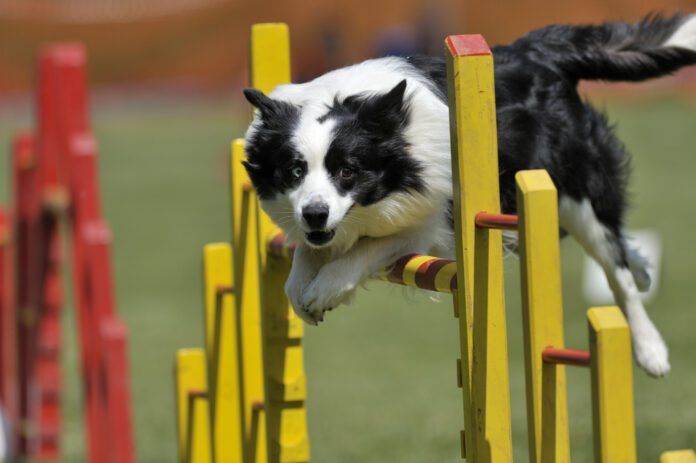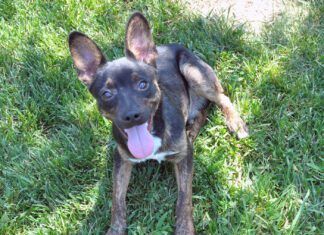When it comes to keeping your dog healthy, active, and energized, the right diet plays a crucial role. For dogs with higher energy needs—active dogs, working dogs, athletes, puppies, nursing females, and dogs recovering from illness or surgery—finding a diet that is energy-dense is crucial. You need a nutrient-dense, high-calorie food that will help keep your dog performing at his or her best. But how do you decide? Read on.
What Is High-Calorie Dog Food?
High-calorie dog food is designed to provide more energy per serving, typically through higher levels of fat, protein, and sometimes digestible carbohydrates. This type of food is ideal for dogs with elevated energy needs, including working dogs, sport dogs, dogs with high metabolisms, and those who are highly active or undergoing intense training. The dog food bag will likely be labeled for these types of dogs. Active dogs, and those with high metabolisms or specific health concerns, burn through calories much faster than sedentary dogs.
High-calorie foods are designed to provide the necessary nutrients and energy required to fuel their lifestyles without overfeeding them. This ensures that dogs maintain their weight, muscle mass, and energy levels throughout the day. For active dogs, high-calorie food helps ensure they have the energy to keep their muscles and metabolism functioning efficiently, giving them stamina to perform throughout the day. Dogs recovering from medical conditions often need extra calories to support tissue repair, fuel the immune system, and regain strength, and promote healing.
How to Select The Best Dog Food
Fat is the most energy-dense nutrient at 9 calories per gram. On the other hand, protein and carbohydrates only 4 calories per gram. Because of its density, many high-calorie foods are formulated with a higher fat content, ranging from 15% to 30%, or higher, compared to standard dog food that typically ranges from 8% to 15% fat. The higher fat content provides a concentrated source of energy, allowing active dogs to get the fuel they need without needing to consume large quantities of food.
Read the Dog Food Ingredients List
When selecting the best high-calorie dog food for your active pup, consider:
- The quality of ingredients
- Digestibility of the food
- Any health issues your dog may have
Look for high-quality protein sources of animal origin, such as chicken, beef, lamb, or fish. To maintain muscle mass, high-calorie diets should be high in complete proteins. High-calorie foods should also contain highly digestible ingredients to prevent gastrointestinal issues. And make transitions to your new food over a time of a week or so, plus, it’s wise to buy bags at a size you think your dog can finish within a month.
Calories Count
The calorie content of these foods typically ranges from 400 to 500 or more calories per cup. If your dog has specific health needs, such as joint issues, a sensitive stomach, or a history of heart disease, choose a formula that addresses those concerns in addition to providing high-calorie support.
High-calorie dog food is an excellent choice for active dogs who require more energy to maintain their vitality, muscle mass, and endurance. Whether you have a sporting dog, a working dog, or a high-energy puppy, a nutrient-dense, high-calorie food will help keep them performing at their best. Note: Please visit our website and use our searchable database of wet dog foods and dry dog foods to help narrow down the number of choices to what you’re looking to find for your dog. For example, if your dog can’t eat chicken, our database will bring up foods that don’t include chicken.
Ask Questions
If you’re not sure a food is right for your dog, such as maybe you’re worried about a certain ingredient that isn’t on the bag, send an email to the company’s customer service. Usually, if you ask a specific question, you’ll get a helpful answer. If you don’t, you may want to look at other foods. Most customer service representatives will request help from the company’s nutritionists when necessary, so you may not get an immediate response. Good companies want your business.
And, of course, as with any dietary change, always consult your veterinarian to ensure the diet is appropriate for your specific dog and their health conditions. With the right food, your dog will have all the energy they need to stay active, happy, and healthy.






